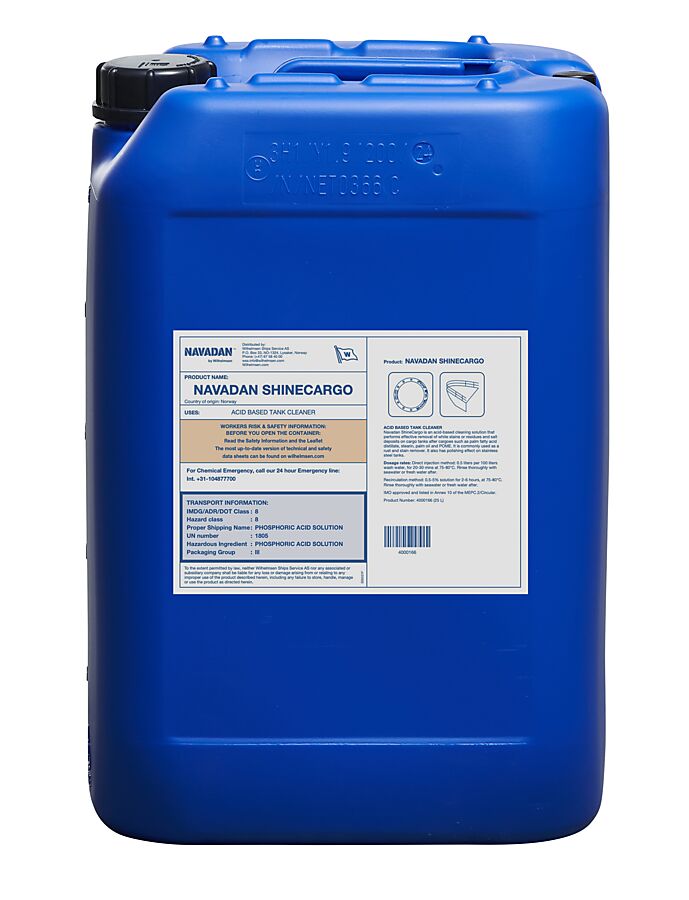
Last updated: 09/04/2025 07:55:30
NAVADAN SHINECARGO 25 LTR
Product Code
- Product group:
- 024
- Product number:
- 4000166

Navadan ShineCargo is an acid based cleaner that performs effective removal of rust stains from painted surfaces of cargo holds. It can also be used for cleaning after ores, lime- stone, and brightening of metal surfaces in cargo holds.


